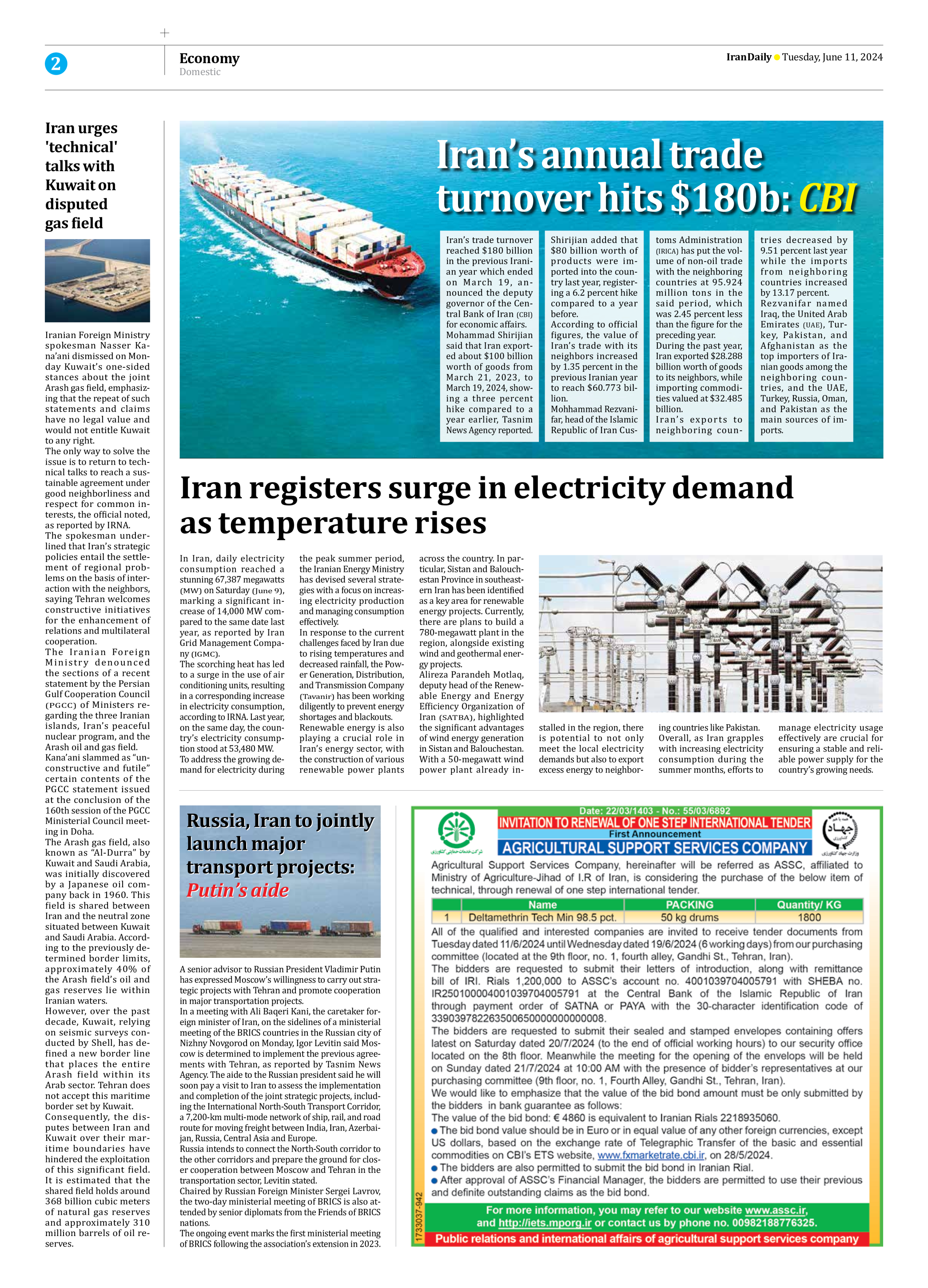
Copy in clipboard...
Iran urges ’technical’ talks with Kuwait on disputed gas field
The only way to solve the issue is to return to technical talks to reach a sustainable agreement under good neighborliness and respect for common interests, the official noted, as reported by IRNA.
The spokesman underlined that Iran’s strategic policies entail the settlement of regional problems on the basis of interaction with the neighbors, saying Tehran welcomes constructive initiatives for the enhancement of relations and multilateral cooperation.
The Iranian Foreign Ministry denounced the sections of a recent statement by the Persian Gulf Cooperation Council (PGCC) of Ministers regarding the three Iranian islands, Iran’s peaceful nuclear program, and the Arash oil and gas field.
Kana’ani slammed as “unconstructive and futile” certain contents of the PGCC statement issued at the conclusion of the 160th session of the PGCC Ministerial Council meeting in Doha.
The Arash gas field, also known as “Al-Durra” by Kuwait and Saudi Arabia, was initially discovered by a Japanese oil company back in 1960. This field is shared between Iran and the neutral zone situated between Kuwait and Saudi Arabia. According to the previously determined border limits, approximately 40% of the Arash field’s oil and gas reserves lie within Iranian waters.
However, over the past decade, Kuwait, relying on seismic surveys conducted by Shell, has defined a new border line that places the entire Arash field within its Arab sector. Tehran does not accept this maritime border set by Kuwait.
Consequently, the disputes between Iran and Kuwait over their maritime boundaries have hindered the exploitation of this significant field. It is estimated that the shared field holds around 368 billion cubic meters of natural gas reserves and approximately 310 million barrels of oil reserves.







